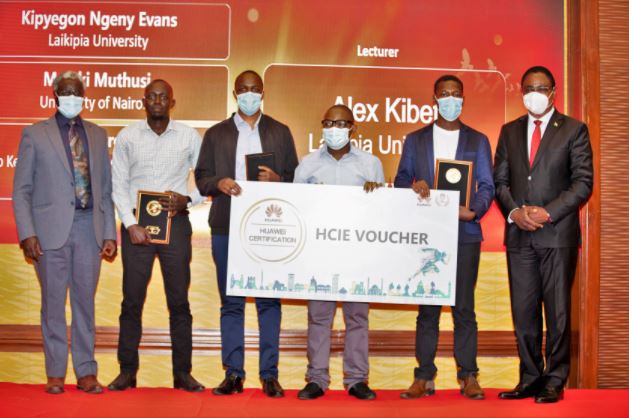
Three Kenyan teams that excelled at the Huawei ICT Competition Global Finals have today been awarded at an event held at the Serena Hotel officiated by the Principal Secretary of the State Department for University Education and Research in the Ministry of Education, Amb. Simon Nabukwesi. In addition to the medals and certificates, the winners also received variety of Huawei products and Huawei exam voucher as rewards.
The teams competed under the network and innovation tracks. The Network Track teams were awarded 1st and 3rd place while team Mazingira was awarded 3rd place under the Innovation track as well as their lecturers and tutors. Other key guests in attendance included the University Prof. Joseph Rotich, the Deputy Vice Chancellor JKUAT Prof. Robert Kinyua Wambui Ngumi, UNESCO’S Head of natural sciences Prof. Jayakumar Ramasamy, Dean of Students University of Nairobi Mr. Johnson Kinyua.